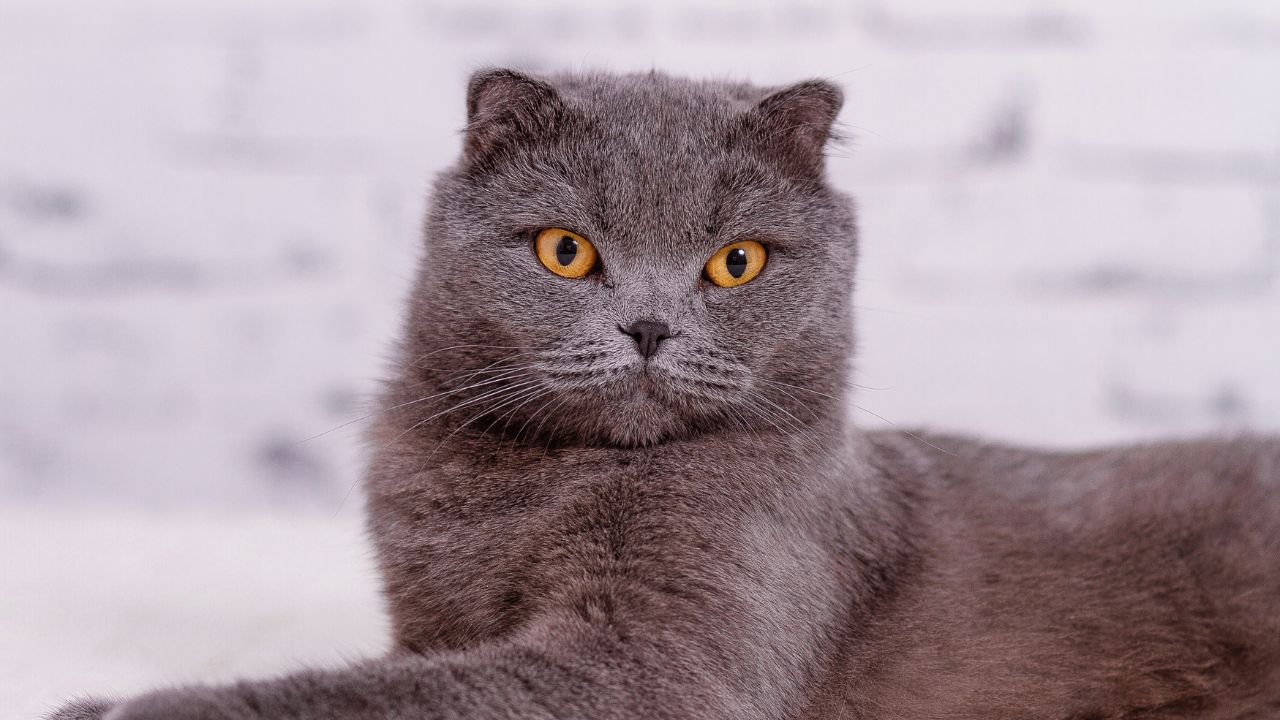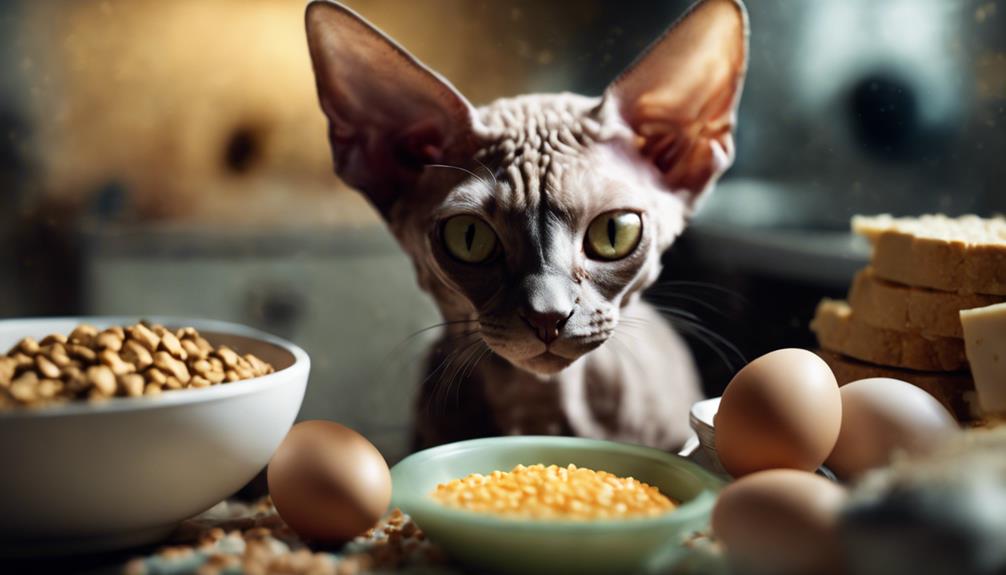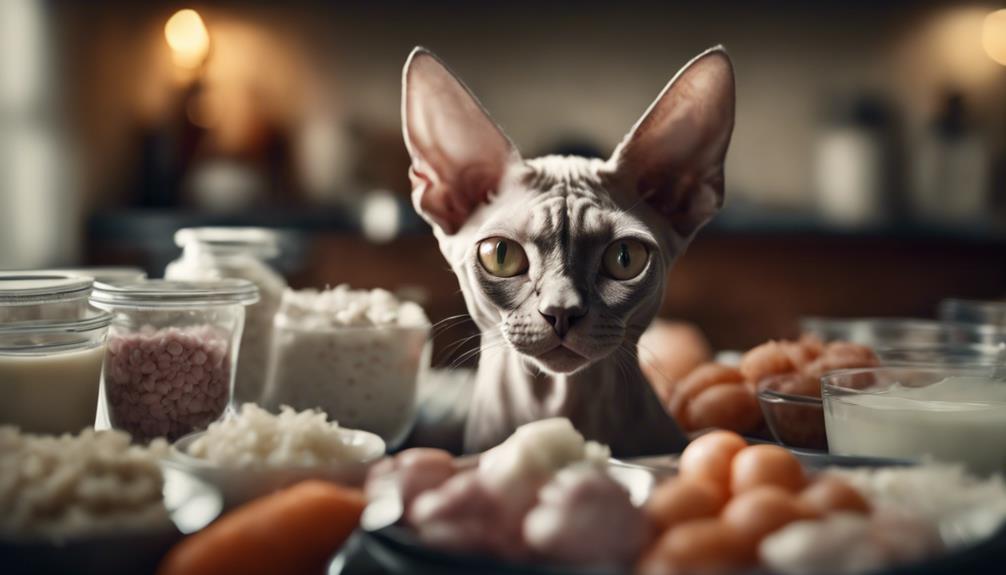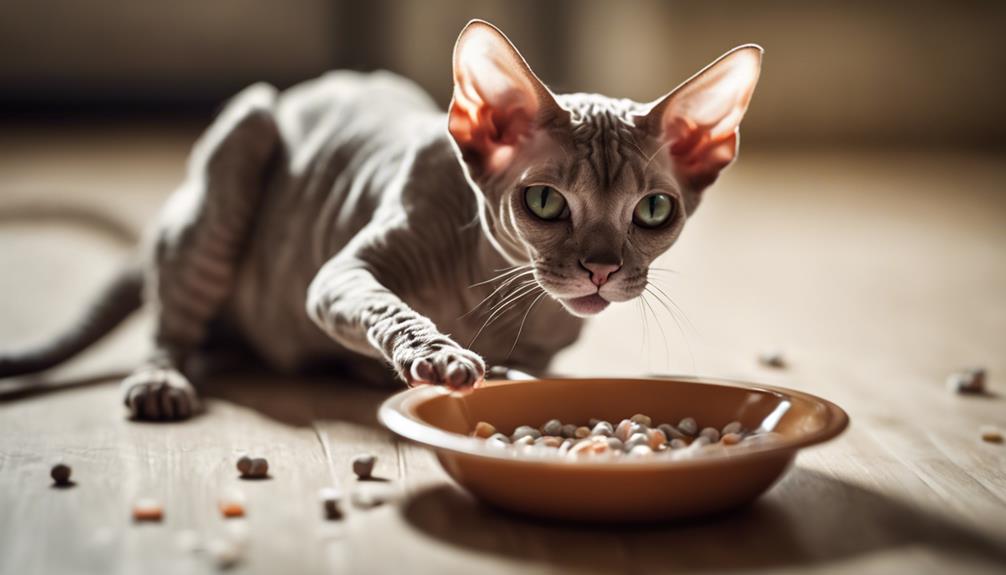Cats are one of the most popular pets in the world, and it’s not hard to see why. They are cute, cuddly, and make great companions. However, not all cats are created equal. Some breeds have unique characteristics that set them apart from the rest. One such trait is turned down ears.
If you’re wondering what kind of cat has turned down ears, you’re in the right place. There are several breeds of cats that have this distinctive feature. The most well-known breed is the Scottish Fold. These cats have ears that fold forward and down, giving them an adorable, owl-like appearance. The trait is caused by a natural dominant gene mutation that affects cartilage throughout the body, causing the ears to fold. Scottish Folds are sweet-tempered, short-haired cats that make great pets for families and individuals alike.
Other breeds with turned down ears include the American Curl, the Highlander, and the Ukrainian Levkoy. While these breeds are less well-known than the Scottish Fold, they are still beloved by cat lovers around the world. Each breed has its own unique characteristics and personality traits, so it’s important to do your research before choosing a cat with turned down ears as your new pet.
What Is a Scottish Fold Cat?
Scottish Fold is a breed of domestic cats that are known for their unique physical characteristic of having folded ears. The breed is believed to have originated in Scotland in the 1960s from a white barn cat named Susie, who had the genetic mutation that caused the ear cartilage to fold forward and downward, giving the cat a distinctive “owl-like” appearance.
History of the Scottish Fold Breed
The Scottish Fold breed was developed by breeding Susie with other cats to produce kittens with the same folded ears. The breed was recognized by the Governing Council of the Cat Fancy (GCCF) in 1966 and has since become a popular cat breed worldwide.
Physical Characteristics of Scottish Fold Cats
Scottish Fold cats come in a variety of colors and patterns, with both long-haired and short-haired varieties. They have a sturdy, rounded body with a bushy medium-long tail. The most distinctive feature of the breed is their folded ears, which can be either tightly folded or loosely folded. Scottish Folds with straight ears are also born occasionally.
Genetics of Scottish Fold Cats
The folded ear trait in Scottish Fold cats is caused by a dominant gene mutation that affects the cat’s cartilage throughout the body. Scottish Fold cats that inherit one copy of the gene are heterozygous and have folded ears, while those that inherit two copies of the gene are homozygous and may have skeletal problems such as osteochondrodysplasia. It is important to note that breeding two Scottish Fold cats together can result in severe health issues for the offspring.
Despite the unique appearance of Scottish Fold cats, they are prone to certain health conditions such as arthritis and ear infections. It is recommended to take them to a veterinarian regularly for check-ups and to monitor their inner ear health and balance.
Other cat breeds with folded ears include the Ukrainian Levkoy and the American Curl breed, while the Exotic Shorthair and Persian breeds have large eyes and pinnae that are low and facing out. Lop-eared cats such as the Siamese breed can also have issues with their Eustachian tube, leading to ear irritation and infections. White cats are also more prone to health conditions related to their coat color.
In conclusion, Scottish Fold cats are a unique and popular cat breed known for their folded ears. While they have a distinctive appearance, it is important to be aware of the potential health issues associated with their genetics and to take proper care of their inner ear health.
Health Issues Associated with Scottish Fold Cats
Scottish Fold cats are known for their adorable turned down ears. However, this unique physical feature is also associated with several potential health issues. In this section, we will discuss the potential health issues in Scottish Fold cats, their symptoms, diagnosis, and prevention.
Potential Health Issues in Scottish Fold Cats
The most common health issue in Scottish Fold cats is the Congenital Osteochondrodysplasia (SFOCD), also known as Scottish Fold Disease. This genetic condition affects the formation of cartilage and bone, leading to joint and bone abnormalities. All Scottish Fold cats with folded ears are affected by this disease to some degree. Other potential health issues in Scottish Fold cats include:
- Infections: Scottish Fold cats are prone to ear infections due to their folded ears, which can trap moisture and debris.
- Mites: Ear mites can also be a problem in Scottish Fold cats due to their ear structure.
- Hearing loss: Scottish Fold cats may experience hearing loss due to their inner ear structure.
- Arthritis: Joint abnormalities can lead to arthritis in Scottish Fold cats.
Symptoms of Health Issues in Scottish Fold Cats
The symptoms of health issues in Scottish Fold cats vary depending on the condition. However, some common symptoms include:
- Pain or discomfort
- Lethargy
- Loss of appetite
- Difficulty walking or jumping
- Balance issues
- Deafness
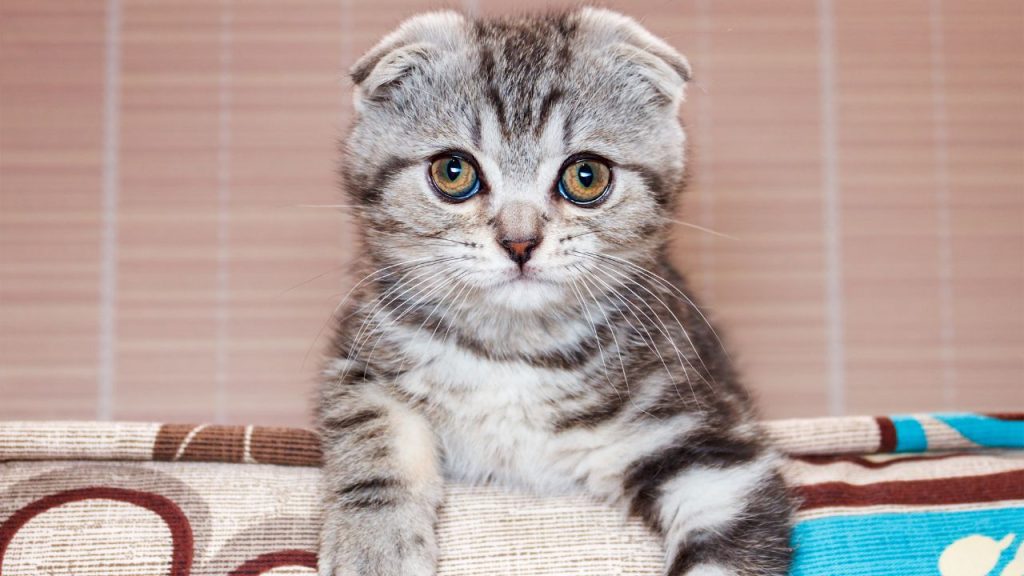
Diagnosing Health Issues in Scottish Fold Cats
If you suspect your Scottish Fold cat is experiencing health issues, it is important to take them to a veterinarian for a physical exam. The veterinarian may also recommend X-rays to diagnose joint and bone abnormalities. In some cases, a specialist such as a veterinary ophthalmologist or neurologist may be needed for further diagnosis.
Preventing Health Issues in Scottish Fold Cats
Preventing health issues in Scottish Fold cats starts with responsible breeding. It is important to avoid breeding cats with folded ears to prevent passing on the genetic mutation. Regular veterinary checkups and proper ear cleaning can also help prevent infections and mites. Providing a healthy diet and regular exercise can also help prevent joint and bone issues.
In conclusion, Scottish Fold cats are prone to several potential health issues, including joint and bone abnormalities, infections, mites, and hearing loss. It is important to be aware of these issues and take preventative measures to ensure your cat’s health and well-being.
Living with a Scottish Fold Cat
If you’re considering getting a Scottish Fold cat, there are a few things you should know about living with this unique breed. Scottish Folds are known for their distinctive, folded ears and round faces, which give them an almost owl-like appearance. Here are some things to keep in mind if you’re considering adopting a Scottish Fold cat.
Personality of Scottish Fold Cats
Scottish Folds are known for their friendly and affectionate personalities. They are typically good with children and other pets, and enjoy spending time with their owners. They are also known for being relatively quiet cats, which can be a plus if you live in an apartment or have close neighbors.
Exercise and Playfulness of Scottish Fold Cats
Scottish Folds are active cats that enjoy playing and exploring their environment. They are particularly fond of toys that allow them to pounce and chase, such as feather wands and laser pointers. It’s important to provide your Scottish Fold with plenty of opportunities to play and exercise to keep them healthy and happy.
Intelligence of Scottish Fold Cats
Scottish Folds are intelligent cats that are quick to learn and enjoy problem-solving. They are also known for their loyalty to their owners and can form strong bonds with their human family members.
Caring for Scottish Fold Kittens
If you’re adopting a Scottish Fold kitten, it’s important to provide them with plenty of socialization and playtime to help them develop into well-adjusted adults. You should also make sure to provide them with a high-quality kitten food that is rich in nutrients to support their growth and development.
Caring for Adult Scottish Fold Cats
Adult Scottish Folds require regular grooming to keep their dense fur in good condition. You should also provide them with plenty of opportunities to play and exercise to keep them healthy and happy. It’s also important to monitor their ears for any signs of discomfort, as the folded ears characteristic of the breed can sometimes lead to issues with ear infections.
Overall, Scottish Fold cats make great pets for families and individuals alike. If you’re considering adopting a Scottish Fold, make sure to do your research and find a reputable breeder or rescue organization. The Cat Fanciers’ Association and The International Cat Association are good resources for learning more about the Scottish Fold cat breed.

